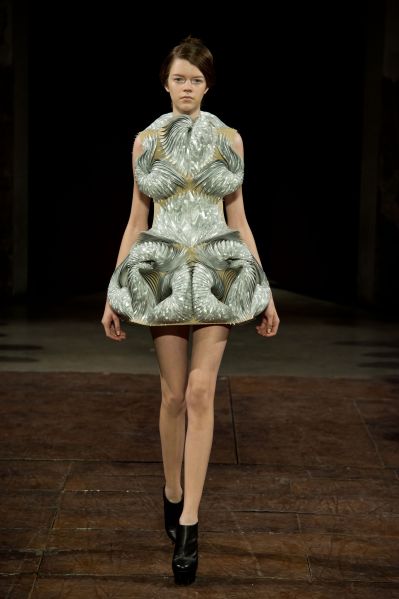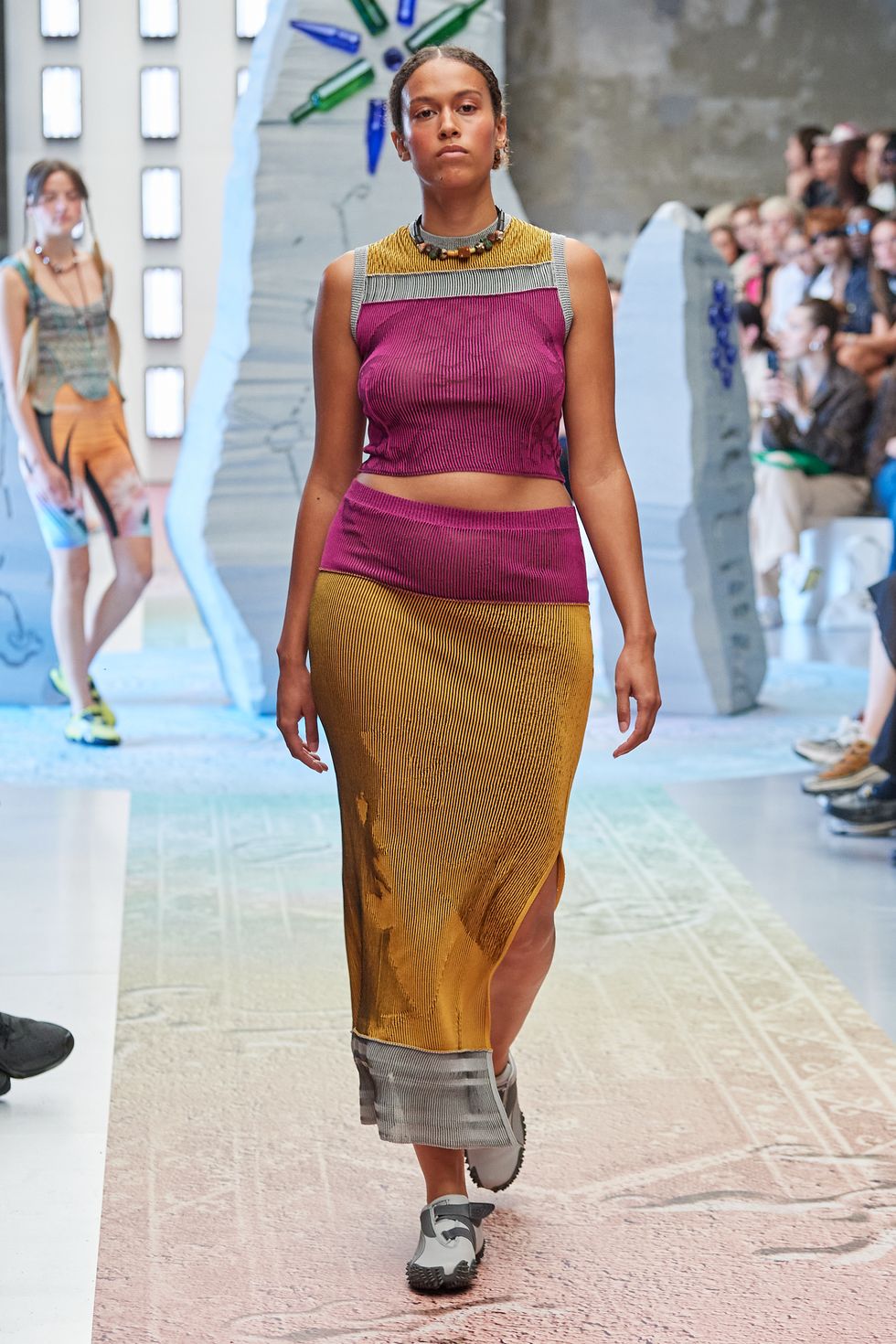The Impact of Sustainable Practices on Modern Fashion Styles
Lasting practices have improved modern-day style, driving a shift towards environment-friendly materials and honest manufacturing. Developers currently favor natural cotton, recycled materials, and ingenious textiles. Upcycling has actually changed waste right into distinct garments, while transparency in sourcing has come to be necessary. This evolution shows a growing awareness amongst customers regarding their investing in options. As the market adapts, brand-new patterns arise that difficulty conventional appearances. What might the future hold for fashion in this framework?
The Increase of Eco-Friendly Materials
Exactly how have green products transformed the apparel industry? The introduction of environmentally friendly products has actually substantially reshaped style, driving brands to reassess their sourcing and manufacturing procedures. These sustainable alternatives, consisting of natural cotton, hemp, and recycled polyester, supply a decreased ecological footprint contrasted to standard fabrics. Developers are now focusing on these materials, identifying that consumers progressively favor brands committed to sustainability.This change has led to ingenious techniques, where fashion residences explore natural dyes and biodegradable fabrics, boosting both visual appeal and ecological responsibility. On top of that, cooperations in between designers and sustainability-focused firms have sped up the combination of environmentally friendly products right into mainstream collections.As an outcome, the fashion business is observing a profound yet gradual modification, moving towards a more sustainable future. This dedication not only shows progressing customer worths yet likewise demonstrates the potential for style to lead in ecological stewardship.
Upcycling: Changing Waste Into Style
Upcycling has emerged as a transformative pressure in the apparel industry, transforming discarded products into preferable garments and accessories. This ingenious approach not just reduces waste however additionally encourages imagination and creativity among developers. By repurposing things such as old clothes, textile scraps, and also non-textile materials, upcycling produces one-of-a-kind pieces that narrate, reflecting specific style and ecological consciousness.Many modern brands and independent developers have accepted upcycling as a core technique, appealing to consumers that value sustainability and uniqueness. The procedure frequently includes methods like jumble, reconfiguration, or decoration, enabling limitless opportunities in layout. Because of this, upcycled style resonates with those seeking to make ecologically accountable options while still sharing individual aesthetics.In essence, upcycling not only alleviates the environmental influence of style waste but also cultivates a new culture of advancement and recognition for workmanship within the industry.
Ethical Manufacturing: Fair Labor and Transparency
Honest manufacturing in vogue highlights the relevance of reasonable earnings for employees, ensuring that laborers get just compensation for their efforts. Transparency in supply chains is vital, allowing consumers to comprehend the origins of their garments and the problems under which they are made. Additionally, moral sourcing techniques promote obligation in choosing products, reinforcing the commitment to sustainability and social justice.
Fair Wages for Employees
While the garment industry significantly embraces sustainable methods, guaranteeing fair salaries for employees stays an important part of moral manufacturing. Fair salaries not just equip employees however also enhance the general lifestyle for people in the supply chain. Several brand names are currently adopting policies that focus on fair payment, acknowledging that a sustainable future can not be improved exploitation. By committing to reasonable pay, business cultivate loyalty and improve efficiency among their employees (Sedgars Designer Fashion). Furthermore, consumers are coming to be more knowledgeable about labor issues and are progressively requiring transparency concerning employees' civil liberties. Therefore, brands that focus on fair earnings are not only lining up with honest requirements however are also placing themselves competitively in a market that values social duty
Transparency in Supply Chains
The dedication to fair salaries is inherently linked to the more comprehensive problem of openness in supply chains within the style sector. Transparency guarantees that customers are educated regarding the beginnings of their clothing and the problems under which they are generated. Brand names that prioritize transparency commonly publish comprehensive reports outlining their supply chain processes, labor practices, and sourcing of materials. This openness fosters count on and loyalty amongst consumers who increasingly require ethical practices. Transparency helps to hold business liable for their labor practices, enabling analysis and motivating improvements. By disclosing the complexities of their supply chains, brand names can add to an extra fair fashion ecological community, inevitably promoting not only honest manufacturing but likewise sustainable usage amongst their clientele.

Ethical Sourcing Practices
As customers end up being extra mindful of the influence of their acquiring choices, brand names are progressively adopting honest sourcing methods that focus on fair labor and environmental sustainability. These practices entail ensuring that employees get fair earnings, risk-free working problems, and are treated with self-respect. Several fashion business are relocating far from unscrupulous labor techniques and are instead collaborating with providers who comply with ethical criteria. Transparency in sourcing additional enhances customer trust fund, as brand names divulge their supply chain practices, permitting customers to make informed options. This change towards honest sourcing not just adds to social duty however additionally resonates with a growing demographic that worths sustainability in fashion. As an outcome, ethical sourcing is becoming a defining characteristic of modern style brand names.
The Duty of Innovation in Sustainable Style
The fashion sector has long been connected with waste and pollution, innovation is increasingly transforming it into a more lasting market. Technologies such as 3D printing make it possible for developers to develop garments with much less product waste, while digital fabric printing permits on-demand production, lowering excess supply. Additionally, advancements in recycling innovations are assisting in the repurposing of textiles, lessening land fill contributions.In enhancement, information analytics and artificial intelligence assistance brands forecast trends much more accurately, ensuring they produce just what is required. have a peek at these guys Blockchain modern technology improves transparency in supply chains, permitting customers to map the origins of their apparel and verify lasting techniques. Moreover, wearable innovation is advancing, advertising longevity and performance in vogue things. With these technological innovations, the apparel industry is gradually adopting a much more circular economic climate model, fostering sustainable practices that could redefine its environmental influence.

Aware Consumerism: Shifting Customer Mindsets
Mindful consumerism is reshaping the fashion business as customers increasingly prioritize ethical style options. This change is driven by a need for openness, compelling brand names to disclose their methods and supply chains. As an outcome, brand name commitment is evolving, with customers much more most likely to support those that align with their values.
Ethical Style Options
Moving purchaser mindsets in the direction of ethical fashion options reflects a growing awareness of the influence of customer behavior on the setting and society. Consumers are significantly prioritizing brand names that emphasize ethical manufacturing practices, lasting materials, and fair labor conditions. This modification is sustained by a desire to sustain companies that straighten with individual worths, promoting a more accountable apparel industry. As an outcome, brand names are adapting their methods, incorporating openness and sustainability into their core objectives. Honest style options not just test typical retail methods yet also motivate customers to assess the lifecycle of their garments. This change signifies a collective step towards a more mindful method to style, where the implications of purchases prolong beyond simple looks to incorporate more comprehensive social and ecological considerations.
Impact of Transparency

Brand Name Loyalty Change
What drives customers to continue to be loyal to brands in today's fashion landscape? Increasingly, sustainability plays a crucial function. As awareness of environmental issues grows, consumers are being attracted in the direction of brands that show honest methods and transparency. This change in the direction of aware consumerism has actually led to a reevaluation of standard brand name commitment, where values line up a lot more very closely with individual principles. Brand names that focus on lasting materials, fair labor techniques, and green manufacturing approaches are frequently awarded with customer commitment. This evolution is mirrored in acquiring choices, as purchasers are much more going to support brand names that contribute favorably to culture. As a result, sustainability has come to be not simply an advertising tool, but a defining aspect in developing long-term brand name links with a much more socially aware and discerning customer base.
The Influence of Lasting Fashion on Patterns
As consumers significantly focus on sustainability, the fashion business is experiencing a considerable change in trends. This change has actually brought about the surge of environment-friendly materials, such as natural cotton, recycled polyester, and ingenious textiles originated from sustainable sources. Developers are significantly concentrated on developing versatile, resilient garments that urge try this website mindful usage, relocating far from rapid fashion's fleeting styles.Moreover, honest techniques are ending up being a hallmark of brand identity, with lots of companies highlighting their commitment to fair labor and environmental stewardship. The impact of lasting style is additionally evident in the popularity of second hand purchasing and clothing swaps, promoting a round economy and decreasing waste.Fashion shows and campaigns now usually feature sustainable collections, emphasizing the visual appeal of eco-conscious options. Generally, the effect of sustainable fashion on trends reflects a more comprehensive societal shift towards liable consumerism, forming the future of the industry in profound means.
Future Innovations in Eco-Conscious Design
The evolution of sustainable fashion fads lays the foundation for future developments in eco-conscious layout. As customers progressively prioritize ecological duty, designers are exploring advanced products and techniques. Eco-friendly materials, such as mycelium and algae-based textiles, are obtaining grip, assuring to decrease waste and dependence on petroleum-based fibers.Moreover, improvements in modern technology are paving the way for cutting-edge production techniques. 3D printing, for circumstances, enables for on-demand manufacturing, reducing excess supply and resource consumption. Circular style models are likewise arising, highlighting recycling and upcycling, enabling garments to have actually extended life cycles.Collaboration between brand names and technology firms is necessary for these technologies. By leveraging data analytics and fabricated intelligence, designers can create extra sustainable supply chains and minimize their carbon impacts. As eco-conscious methods continue to progress, they essentially transform the style landscape, pressing the borders of creativity while protecting the planet.
Often Asked Concerns
Just How Can I Recognize Sustainable Style Brands When Purchasing?
To recognize lasting style brand names while purchasing, one should search for certifications, inspect products, analyze manufacturing transparency, and research study brand name worths. Sedgars South Africa. Involving with customer testimonials and sustainability records can better assist enlightened buying decisions
Are Second-Hand Clothes Thought About Lasting Fashion?
Pre-owned clothes are usually considered lasting fashion because of their function in decreasing waste and extending the lifecycle of garments. By purchasing used items, customers add to a much more eco-friendly clothing economy.
What Is the Ecological Effect of Rapid Style?
The environmental impact of quick style is considerable, adding to air pollution, too much waste, and source deficiency. The sector's quick manufacturing cycles often focus on revenue over ecological sustainability, aggravating environment change and damaging ecological communities worldwide.
How Do Sustainable Practices Affect Style Pricing?
Lasting techniques often bring about higher manufacturing expenses as a result of honest sourcing and environmentally friendly products. Premium Fashion Sedgars. Consequently, style pricing may raise, mirroring the financial investment in environmental obligation and reasonable labor techniques, which can impact consumer getting decisions
Can Lasting Style Be Trendy and Stylish?
The concern of whether lasting style can be fashionable and stylish usually occurs. Numerous developers currently mix green products with innovative designs, verifying that sustainability and modern appearances can exist together, attracting a fashion-conscious audience. Sustainable methods have reshaped contemporary fashion, driving a shift towards environmentally friendly materials and honest manufacturing. While the style industry significantly page accepts lasting techniques, making certain reasonable salaries for workers stays an important element of moral production. Aware consumerism is improving the style industry as buyers significantly focus on moral style selections. The impact of sustainable fashion is additionally apparent in the popularity of second hand buying and garments swaps, minimizing and promoting a circular economy waste.Fashion programs and campaigns now commonly feature lasting collections, highlighting the visual appeal of eco-conscious selections. To determine sustainable fashion brands while purchasing, one ought to look for certifications, inspect materials, analyze production openness, and study brand name worths.